Are you tired of budget overruns and project delays? Discover how leveraging the right aluminum alloys can transform your industrial construction projects. This comprehensive guide reveals insider secrets to material selection, cost optimization, and efficient project execution.
Understanding Aluminum Alloys: Properties and Applications
Aluminum alloys are essential materials in modern construction and manufacturing, offering a unique blend of strength, lightweight properties, and corrosion resistance. These alloys are formed by combining aluminum with various elements like copper, magnesium, and silicon to enhance their mechanical and physical properties. The versatility of aluminum alloys makes them indispensable in industries such as aerospace, automotive, and construction.
As a project manager or director in industrial construction, understanding the characteristics and applications of aluminum alloys can significantly impact your project’s success.
What is an Aluminum Alloy?
An aluminum alloy is primarily composed of aluminum mixed with other elements to improve its properties. Common alloying elements include:
- Copper: Enhances strength and hardness.
- Magnesium: Increases corrosion resistance and reduces weight.
- Silicon: Improves casting properties and fluidity.
The specific combination of these elements determines the alloy’s performance in various applications. For instance, the 6061 alloy, which contains magnesium and silicon, is known for its excellent weldability and corrosion resistance, making it ideal for structural components in construction projects.
Why Use Aluminum Alloys?
The advantages of using aluminum alloys in construction include:
- Lightweight: Aluminum alloys are significantly lighter than steel or other metals, which helps reduce transportation costs and improve fuel efficiency in vehicles.
- Strength: They provide a high strength-to-weight ratio, allowing for the construction of robust structures without excessive weight.
- Corrosion Resistance: Aluminum naturally forms a protective oxide layer that enhances its durability against environmental factors.
These properties make aluminum alloys an attractive choice for directors and project managers looking to optimize material costs while ensuring safety and performance.
Common Alloying Elements and Their Effects
Understanding the effects of different alloying elements is crucial for selecting the right aluminum alloy for your project:
- Copper (Al-Cu): Increases strength but may reduce corrosion resistance. Commonly used in aerospace applications.
- Magnesium (Al-Mg): Offers excellent corrosion resistance and is often used in marine environments.
- Silicon (Al-Si): Improves fluidity during casting processes, making it suitable for complex shapes.
By carefully selecting the appropriate alloying elements, you can tailor the material properties to meet specific project requirements.
Exploring Different Types of Aluminum Alloys
Aluminum alloys are categorized into series based on their primary alloying element. Each series has distinct properties that make them suitable for various applications.
Series Designations and Their Meanings
- 1000 Series: Pure aluminum (99% or higher) known for excellent corrosion resistance.
- 2000 Series: Copper as the primary element; high strength but lower corrosion resistance.
- 3000 Series: Manganese-based; good formability and moderate strength.
- 4000 Series: Silicon-based; excellent for welding applications due to low melting points.
- 5000 Series: Magnesium-based; great for marine applications due to superior corrosion resistance.
- 6000 Series: Magnesium and silicon; versatile with good weldability.
- 7000 Series: Zinc-based; known for high strength and toughness, often used in aerospace applications.
Key Properties and Typical Uses of Popular Alloys
| Alloy Series | Primary Alloying Element | Key Properties | Common Uses |
| 1000 | None | Excellent corrosion resistance | Electrical applications |
| 2000 | Copper | High strength | Aerospace components |
| 3000 | Manganese | Good formability | Beverage cans |
| 4000 | Silicon | Good weldability | Automotive parts |
| 5000 | Magnesium | Superior corrosion resistance | Marine structures |
| 6000 | Magnesium & Silicon | Versatile with good weldability | Structural components |
| 7000 | Zinc | High strength | Aircraft frames |
This table illustrates how different aluminum alloys can be matched to specific project requirements, ensuring optimal performance while managing costs effectively.
Comparison Table Highlighting Strengths and Weaknesses of Different Alloys
| Alloy Type | Strength | Corrosion Resistance | Weldability | Cost |
| 2024 | High | Moderate | Poor | Moderate |
| 5052 | Moderate | Excellent | Good | Moderate |
| 6061 | Good | Good | Excellent | Low |
| 7075 | Very High | Moderate | Poor | High |
This comparison helps you evaluate which aluminum alloy best fits your project’s needs based on its strengths, weaknesses, cost implications, and required performance characteristics.
Read more Blog & New:
Manufacturing Processes and Their Impact on Alloy Performance
The manufacturing process significantly influences the performance characteristics of aluminum alloys. Understanding these processes can help you optimize your designs for efficiency.
Casting
Casting involves pouring molten aluminum into molds to create complex shapes. This method is ideal for producing intricate components with minimal machining required. However, care must be taken to ensure that the casting process does not introduce defects that could compromise structural integrity.
Extrusion
Extrusion is a process where aluminum is forced through a die to create long shapes with uniform cross-sections. This technique allows for precise control over dimensions and surface finish, making it suitable for architectural applications like window frames and structural beams.
Forging
Forging involves shaping aluminum through compressive forces, resulting in improved mechanical properties due to grain refinement. This process is commonly used for high-strength components that require exceptional durability.
Heat Treatments and Their Influence on Properties
Heat treatment processes such as annealing or aging can enhance the strength and hardness of aluminum alloys. By understanding how these treatments affect material properties, you can make informed decisions about which processes to apply based on your project’s requirements.
Selecting the Right Aluminum Alloy for Your Needs
Choosing the correct alloy involves matching its properties to your specific application requirements.
Matching Alloy Properties to Specific Applications
When selecting an aluminum alloy, consider factors such as:
- Mechanical Properties: Strength, ductility, hardness.
- Corrosion Resistance: Environmental exposure conditions.
- Weldability: Compatibility with fabrication processes.
By aligning these factors with your project’s demands, you can ensure optimal performance while minimizing costs.
Considering Factors Like Cost, Machinability, and Weldability
Cost considerations play a crucial role in material selection. While some high-strength alloys may offer superior performance, they may also come at a higher price point. Assessing machinability—how easily an alloy can be shaped or cut—can also influence your choice depending on your fabrication capabilities.
Resources for Finding Suppliers
To find reliable suppliers of high-quality aluminum alloys at competitive prices:
- Utilize industry directories or trade associations.
- Attend trade shows focused on materials engineering.
- Network with other professionals in industrial construction.
Establishing relationships with reputable suppliers can help ensure that you meet project deadlines while optimizing material costs.
Working with Aluminum Alloys: Fabrication and Finishing
Proper fabrication and finishing techniques are essential for maximizing the performance and longevity of aluminum alloy components.
Machining alloys
Machining aluminum alloys requires specialized tools and techniques to achieve optimal results. Cozydoor provides guidance on selecting the right cutting tools and machining parameters to achieve the desired surface finish and dimensional accuracy, minimizing material waste and optimizing production efficiency.
Welding techniques for different alloys
Different aluminum alloys require specific welding techniques. Cozydoor offers expertise in various welding methods, ensuring proper joint integrity and strength for your specific alloy choice.
Surface finishing options
Surface finishing enhances the aesthetics and corrosion resistance of aluminum alloys. Anodizing, a popular surface treatment, creates a protective oxide layer that improves durability and offers a wide range of color options. Powder coating provides an additional layer of protection and enhances visual appeal.
Ready to unlock the full potential of aluminum alloys in your construction projects? Contact Cozydoor today for a free consultation and let our experts guide you toward the perfect aluminum alloy solutions for your needs. Benefit from our competitive pricing, vast supplier network, and unparalleled technical expertise. Optimize your designs, reduce costs, and elevate your construction projects with Cozydoor’s tailored aluminum alloy solutions. Fill out the form below to get started!

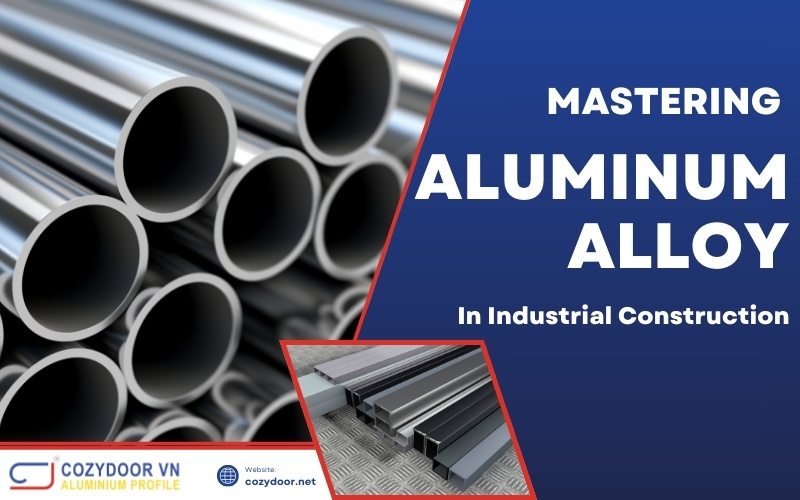
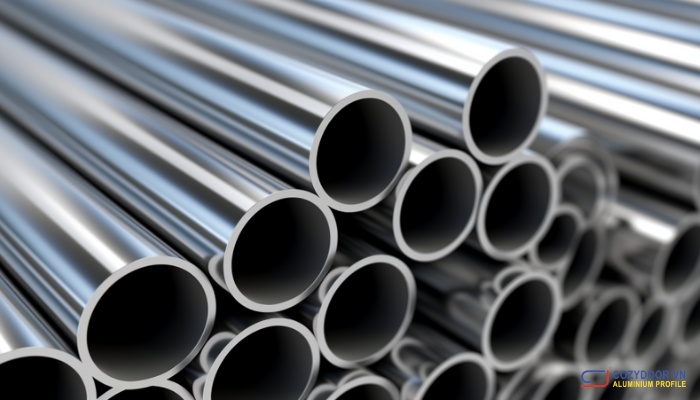
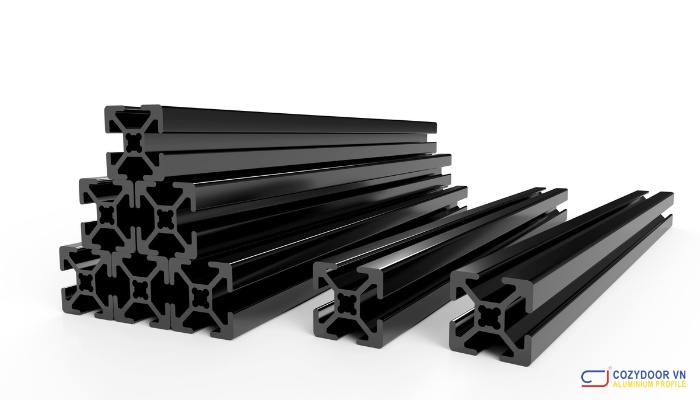
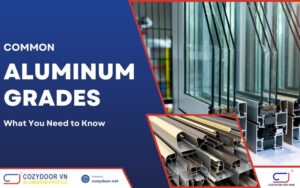
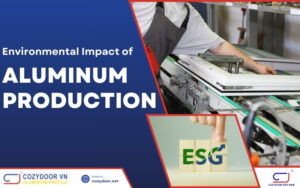
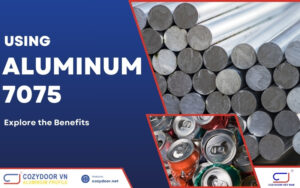
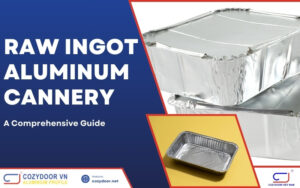
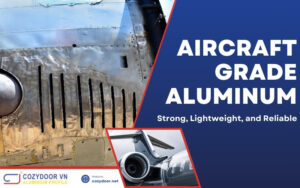
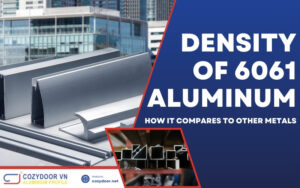
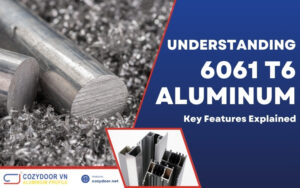

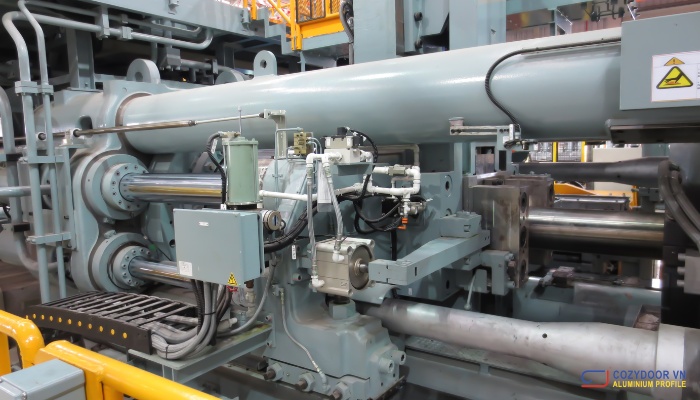
6061-T4 vs T6: Choosing the Best Aluminum for Your Project
Ready to elevate your next industrial construction project? Choosing the [...]
Nov
5 Reasons Why Aluminum Sheet is the Smart Choice
Imagine a material that blends strength with lightness, resists corrosion, [...]
Nov
Custom Aluminum Extrusions: Perfect Fit for Your Design Needs
Tired of the same old, cookie-cutter solutions for your industrial [...]
Nov
The Ultimate Guide to Aluminum Extrusion Dies
This comprehensive guide will equip you with the knowledge and [...]
Nov
The Benefits of Using High Tensile Aluminium in Construction
In today’s fast-paced construction landscape, project managers and directors constantly [...]
Nov
Learn About the Types of Extruded Aluminum and Their Benefits
Are you a construction project manager constantly juggling tight deadlines, [...]
Nov
Is Aluminum Conductive? 7 Ways it Powers Up Industrial Construction Projects.
In the fast-paced world of industrial construction, project managers and [...]
Nov
Common Aluminum Grades: What You Need to Know
In the world of industrial construction, selecting the right materials [...]
Nov